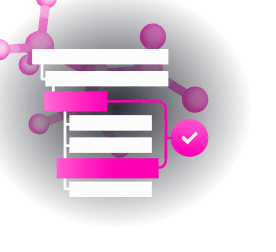Identification
- Generic Name
- KAI-1455
- DrugBank Accession Number
- DB06064
- Background
KAI-1455 is a selective epsilon protein kinase C (εPKC) activator designed to reduce ischemic organ injury during procedures where blood supply may be compromised, such as coronary artery bypass grafting (CABG), congenital cardiac defect repair, and hip replacement and may protect against renal injury associated with contrast media. Several studies have demonstrated that epsilon PKC plays a key role in cytoprotection during periods of ischemia. In preclinical studies, KAI-1455 showed a dramatic reduction in infarct size when delivered prior to the ischemic insult.
- Type
- Small Molecule
- Groups
- Investigational
- Synonyms
- Not Available
Pharmacology
- Indication
Investigated for use/treatment in ischemic reperfusion injury.
 Reduce drug development failure ratesBuild, train, & validate machine-learning modelswith evidence-based and structured datasets.Build, train, & validate predictive machine-learning models with structured datasets.
Reduce drug development failure ratesBuild, train, & validate machine-learning modelswith evidence-based and structured datasets.Build, train, & validate predictive machine-learning models with structured datasets.- Contraindications & Blackbox Warnings
 Prevent Adverse Drug Events TodayTap into our Clinical API for life-saving information on contraindications & blackbox warnings, population restrictions, harmful risks, & more.Avoid life-threatening adverse drug events with our Clinical API
Prevent Adverse Drug Events TodayTap into our Clinical API for life-saving information on contraindications & blackbox warnings, population restrictions, harmful risks, & more.Avoid life-threatening adverse drug events with our Clinical API- Pharmacodynamics
Not Available
- Mechanism of action
KAI-1455 is a selective epsilon protein kinase C (εPKC) activator. It reduces damage during surgical procedures, such as coronary artery bypass grafting, vascular surgery and pediatric cardiac surgery N.B. begun dosing protein tyrosine phosphatase 1B (PTP1B).
Target Actions Organism UProtein kinase C epsilon type Not Available Humans - Absorption
Not Available
- Volume of distribution
Not Available
- Protein binding
Not Available
- Metabolism
- Not Available
- Route of elimination
Not Available
- Half-life
Not Available
- Clearance
Not Available
- Adverse Effects
 Improve decision support & research outcomesWith structured adverse effects data, including: blackbox warnings, adverse reactions, warning & precautions, & incidence rates. View sample adverse effects data in our new Data Library!Improve decision support & research outcomes with our structured adverse effects data.
Improve decision support & research outcomesWith structured adverse effects data, including: blackbox warnings, adverse reactions, warning & precautions, & incidence rates. View sample adverse effects data in our new Data Library!Improve decision support & research outcomes with our structured adverse effects data.- Toxicity
Not Available
- Pathways
- Not Available
- Pharmacogenomic Effects/ADRs
- Not Available
Interactions
- Drug Interactions
- This information should not be interpreted without the help of a healthcare provider. If you believe you are experiencing an interaction, contact a healthcare provider immediately. The absence of an interaction does not necessarily mean no interactions exist.Not Available
- Food Interactions
- Not Available
Categories
- Drug Categories
- Not Available
- Classification
- Not classified
- Affected organisms
- Not Available
Chemical Identifiers
- UNII
- Not Available
- CAS number
- Not Available
- InChI Key
- Not Available
- InChI
- Not Available
- IUPAC Name
- Not Available
- SMILES
- Not Available
References
- General References
- Not Available
- External Links
- PubChem Substance
- 347910325
Clinical Trials
Pharmacoeconomics
- Manufacturers
- Not Available
- Packagers
- Not Available
- Dosage Forms
- Not Available
- Prices
- Not Available
- Patents
- Not Available
Properties
- State
- Solid
- Experimental Properties
- Not Available
- Predicted Properties
- Not Available
- Predicted ADMET Features
- Not Available
Spectra
- Mass Spec (NIST)
- Not Available
- Spectra
- Not Available
- Chromatographic Properties
Collision Cross Sections (CCS)
Not Available
Targets

- Kind
- Protein
- Organism
- Humans
- Pharmacological action
- Unknown
- General Function
- Signal transducer activity
- Specific Function
- Calcium-independent, phospholipid- and diacylglycerol (DAG)-dependent serine/threonine-protein kinase that plays essential roles in the regulation of multiple cellular processes linked to cytoskele...
- Gene Name
- PRKCE
- Uniprot ID
- Q02156
- Uniprot Name
- Protein kinase C epsilon type
- Molecular Weight
- 83673.2 Da
Drug created at November 18, 2007 18:29 / Updated at June 12, 2020 16:52

